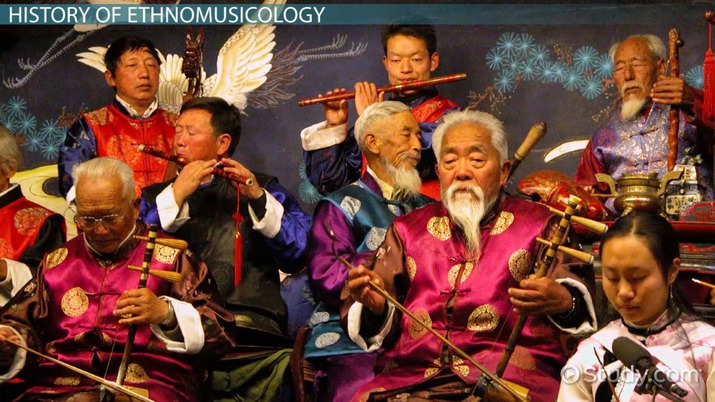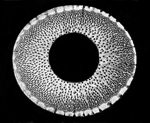|
The Ethnomusicologists' Shakuhachi Historical Facts Ethical Challenge
and Dilemma - Documentary Evidence or Hearsay?
A Question (Q) & Answer (A) Discussion as of September 22, 2024:
Q - Question:
How are responsible shakuhachi history and practice researchers, academics, including certified ethnomusicologists,
supposed to conclude and act, orally as in writing, when observing stark discrepancies between preserved historical documentary evidence,
- and what some of them, while also acting as shakuhachi students, are being differently informed [indoctrinated/injected with?] by some of their teachers?
A - Answer:
Basically, any academically trained and officially authorized "ethnomusicologist" must tell the verifiable truth - nothing else, simple as that!
Although, of course, some degree of "well argued qualified speculations" may be allowed for
to fill out certain "holes" in the documentary evidence.
Anyway, it is central always to base one's research on careful scepticism, if not general suspicion.
Especially so when the field of study is that of historical shakuhachi documents and texts in many of which narratives and information
are more than less fabricated, invented, fake.
But, then what is "the truth" about the shakuhachi and its assumed countless practitioners throughout "history"?
We are here discussing a widely adored Japanese music wind instrument that really first appeared in its actual "modern" form,
design and tonal peculiarities quite late in the 17th century!
Firstly, the more or less "academic" discipline "Ethnomusicology" developed from its "academic" predecessor "Comparative Musicology" which was established
during the last few decades of the 19th century.
In those days, Western classical music was predominantly regarded as in everything "far superior" compared with all other global "non-Western" music traditions.
Those were overall and collectively being considered and described as downright "primitive", "inferior" ... and to some extent, that is still the case.
That outlook even encompassed the many centuries old music cultures of the Far East, most of which are indeed characteristic for their quite well documented histories
and often rather detailed while also quite secretive notation systems.
A:
Now, here is a short quotation from the SEM's current definition of "Ethnomusicology":
"The practice of ethnographic fieldwork and historical research are of equal importance."
Source web page link:

"Ethnomusicology Definition, History & Theories"
Well, as for "ethnographic fieldwork" you can choose the approach of research that focuses on field recording selected "native" musicians playing their local instruments;
then return back home to your study, transcribe the recorded music, analyze and describe the recorded music as it simply "sounds".
That is supposed to be so called "objective", "neutral".
Or, you may take one step further and make it possible to be accepted as a student of some particular native player and experience how it feels "subjectively"
to become and actually be a student player, yourself.
Then, quite importantly, you are now enjoying the privilege of learning how to understand the music notation and how to actually be enabled yourself to recreate the "musical sounds"
in accordance with the notation and, not least: how to "mimick" your teacher's way of interpreting the music notation as well as the whole tradition itself.
Also: That is commonly described as "learning by rote" - or, "by heart"? - despite the fact that here there are actual notations in front of the student and in play during the training!
Such notated music is not "primitive music".
A:
However, with learning "ascetic shakuhachi" "music" playing in particular
- precisely described, and defined, by Uramoto Setchō as "Gyō no ongaku",
行の音楽,
here inevitably arises the obvious conflict between attempting to be at work as the objective "outsider scholar" while at the same time acting as an "insider disciple"
in the role as a - maybe long-time - student of a native shakuhachi teacher.
That is simply impossible: The field-working ethnomusicologist who knows about her or his shakuhachi teacher's orthodox, traditionalistic unfounded beliefs,
and does not openly challenge these, will inevitably be compromizing the required, mandatory role to be performing as an "un-biased, objective academic researcher".
While the "professional" ethnomusicologist is expected to observe that "ethnographic field work and historical research are of equal importance",
in the case of "ascetic shakuhachi" history studies, that proves to be simply utterly impossible.
Aspiring "ethnomusicologists" are not expected, nor obliged, to also be qualifying professionally as competent "Japanologists", "Linguists", "Philologists", "Etymologists".
In order to be capable of specializing in language disciplines as: Classical Chinese, Modern Chinese, Classical Japanese, Kanbun, Pre-Modern & Modern Japanese
that involves many years of high level language studies that are also coupled with thorough insight studies in Japanese cultural history as a whole, in all its diversity, complexity,
and indisputable unique "strangeness", not least.
A:
So, how can any ordinary Western ethnomusicologist possibly know anything in proper depth about the actual "historical facts" when it comes to that of the "shakuhachi"?
Well, that is of course not possible.
So, how can a Western ethnomusicologist who has no real insight in the shakuhachi history documentary evidence have an ethical problem in relation to
traditionalistically thinking, "myth" believing players in Japan regarding "historical facts"?
So, here we are: What then are the actual "historial facts" and the "beliefs of players" that do not correspond, really?
What is the nature of those implied ethical challenges?
The Kyotaku denki, the Enpō 5 (1678!) 'Oboe' Memorandum, the 'Keichō (no) okitegaki' multiple different versions,
and the 'Kyotaku denki kokujikai' were all fabricated in order to somehow legitimize the pseudo Buddhist begging activities of the 'Komusō
shakuhachi rōnin' outcasts since only the second half of the 1600s, at the earliest.
Quite remarkably, those emphasized sources and their titles do not, in any way, refer to one another - as if the other three of them did not exist at all.
Therefore the information presented in those texts can only be regarded, and should be condemned, as false, unreliable and not credible - nor just as "charming myths",
but - sadly so - as "simple lies", only to be described and descarded as such.
Removing those textual sources of false information from the entire traditional shakuhachi
"history" narrative, should indeed be the main focus of any serious "ascetic shakuhachi" researcher and self-declared "expert shakuhachi historian".
Still, let us not forget that such texts that porposefully manipulated with and "constructed" historical reality actually prove
how much was indeed at stake in the Edo World of masterless samurai who became fake "Zen Buddhist" flute beggar monks"
in order to survive despite a veritable status as outcasts under a strictly monitored and controlled miliotary Tokugawa regime.
Nevertheless, here's one sad outcome of all that misunderstanding and resulting misinformation:
A central, misleading quotation from the Facebook group page, originally uploaded in December 19, 2011, titled
Suizen -
吹禅
- Meditation through flute music:
"I named this group "Suizen" to honor a Honkyoku tradition I am studying with my teachers.
Suizen is a Japanese word and means "Blowing Zen".
This is an ancient tradition of playing Japanese bamboo flute as a form of meditation.
Just another way of being present in the moment. - - - "
The group's present administrator now appears to be Jin Soku-shin, as of late September, 2024.
Link to Facebook:
Suizen -
吹禅
- Meditation through flute music
|
|

